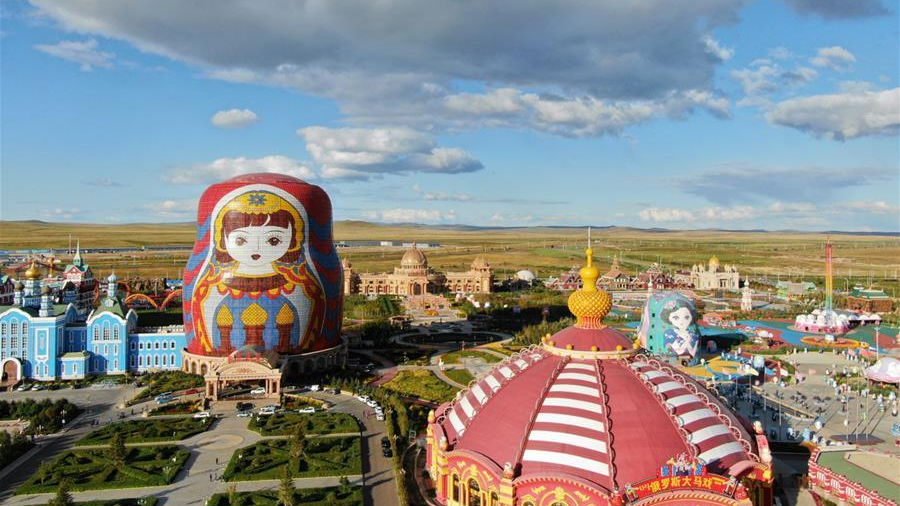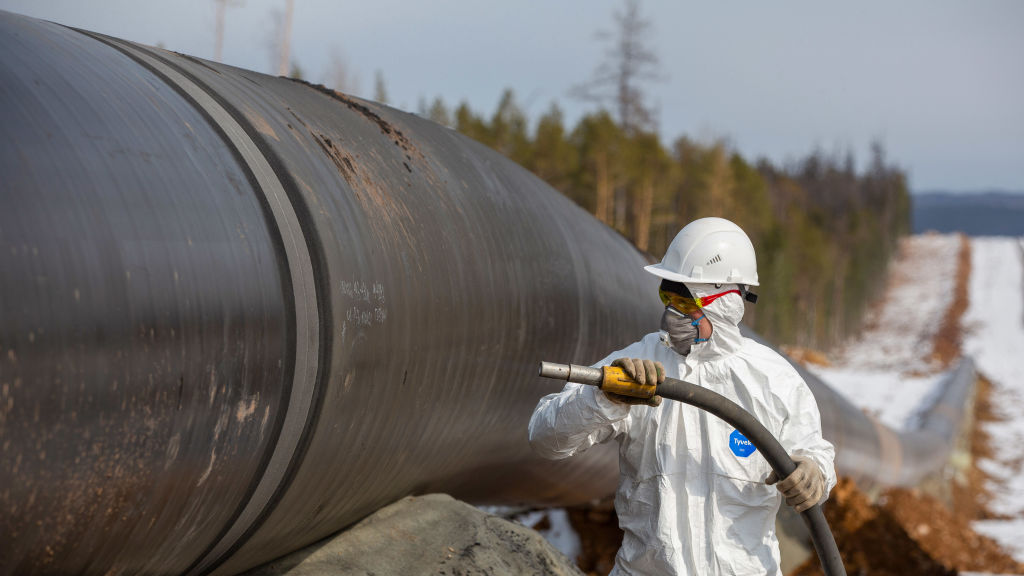
Manzhouli, a Chinese border city with Russia, benefits from trade between the two countries and witnessed rapid economic and social development in north China's Inner Mongolia Autonomous Region. /Xinhua
Manzhouli, a Chinese border city with Russia, benefits from trade between the two countries and witnessed rapid economic and social development in north China's Inner Mongolia Autonomous Region. /Xinhua
Editor's note: Bradley Blankenship is a Prague-based American journalist, political analyst and freelance reporter. The article reflects the author's opinions and not necessarily the views of CGTN.
Chinese President Xi Jinping and Russian President Vladimir Putin vowed to enhance their countries' bilateral relationship in a virtual meeting held on December 15. The meeting took place in the context of growing Western pressure against Russia over the developments on the Russian-Ukrainian border.
The outcome of this meeting highlights the growing strategic importance of the bilateral relationship between Russia and China, which represents a major geopolitical turning point.
As was articulated in an essay published in National Interest by A. Wess Mitchell, a former U.S. Assistant Secretary of State for European and Eurasian Affairs, one of the major challenges for U.S. geopolitical dominance is to ensure that the U.S. avoids a two-front conflict with China and Russia. He writes that U.S. diplomacy should focus on turning the two countries against each other by forcing Russia to become an Asian power as opposed to a European one.
It's evident that the administration of President Joe Biden is at least pursuing some version of this strategy by aggressively upping tensions in Europe while also offering Russia some carrots along the way, as was seen in the summits between Biden and Putin. However, China and Russia clearly have far more to gain for their core national interests through cooperation rather than confrontation.
For example, the creation of an independent financial infrastructure would help Russia, China and their partners around the world duck illegal unilateral sanctions by the United States. Moreover, as most concerns Putin with regards to the situation vis-a-vis NATO, it would eliminate a major bargaining chip that the U.S. has, namely its "nuclear option" of disconnecting Russia from the SWIFT international payment system.
Without this option, Biden and his team would have to take binding security guarantees from the Russian side seriously, which Moscow says it will submit soon to NATO. The U.S. would otherwise see the prospect of a binding agreement with Russia as unacceptable because it wants to shoulder any trace of Russian influence out of Europe completely.

A worker uses a sandblasting machine to treat the seams of joined pipework during pipeline-laying operations for the Gazprom PJSC Power of Siberia gas transmission line between the Kovyktinskoye and Chayandinskoye gas fields near Irkutsk, Russia, April 6, 2021. /Getty
A worker uses a sandblasting machine to treat the seams of joined pipework during pipeline-laying operations for the Gazprom PJSC Power of Siberia gas transmission line between the Kovyktinskoye and Chayandinskoye gas fields near Irkutsk, Russia, April 6, 2021. /Getty
For Russia, this situation with NATO goes back over 30 years when former U.S. President George H.W. Bush and former Soviet President Mikhail Gorbachev discussed Germany's reunification. After the fall of the Berlin Wall in 1989, Europe's security order depended on whether a reunified Germany would align with the West (NATO) or the East (the Warsaw Pact) or neither.
In early 1990, then U.S. Secretary of State James Baker offered the Soviet side an offer. He said that in exchange for cooperation on the Germany question, the U.S. would make "iron-clad guarantees" that NATO would not expand "one inch eastward." The Soviet side agreed to reunification talks less than a week later. However, no document was signed on these "guarantees."
It was understood, by the shake of a hand, that Germany would be aligned with the West and NATO would not expand. Not long after the fall of the Soviet Union, this status quo was abandoned as NATO indeed expanded eastward – right up to Russia's doorstep.
This is precisely why further NATO expansion into Ukraine is met with so much hostility from Russia because it represents a broken security guarantee.
From this perspective, virtually all of NATO's actions over the past 30 years can be interpreted as hostile to Russia and inherently destabilizing for Europe. Had there been binding security guarantees in place before, the conflict we see now between Russia and NATO may have never happened in the first place. However, the situation can still be rectified if these guarantees are made now – which is in the interest of all peace-loving nations.
(If you want to contribute and have specific expertise, please contact us at opinions@cgtn.com.)

